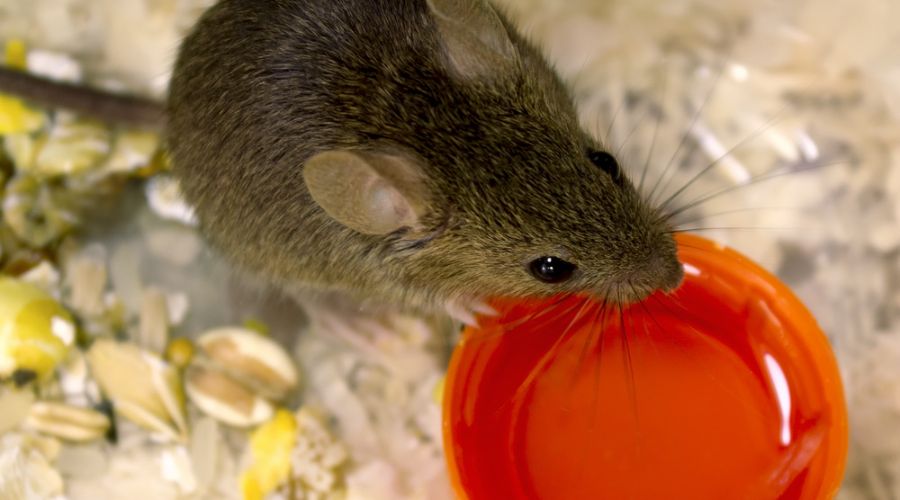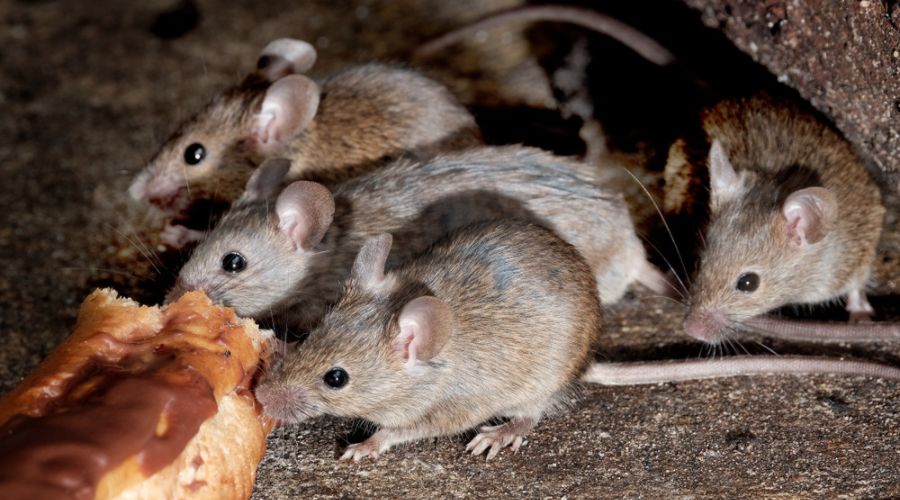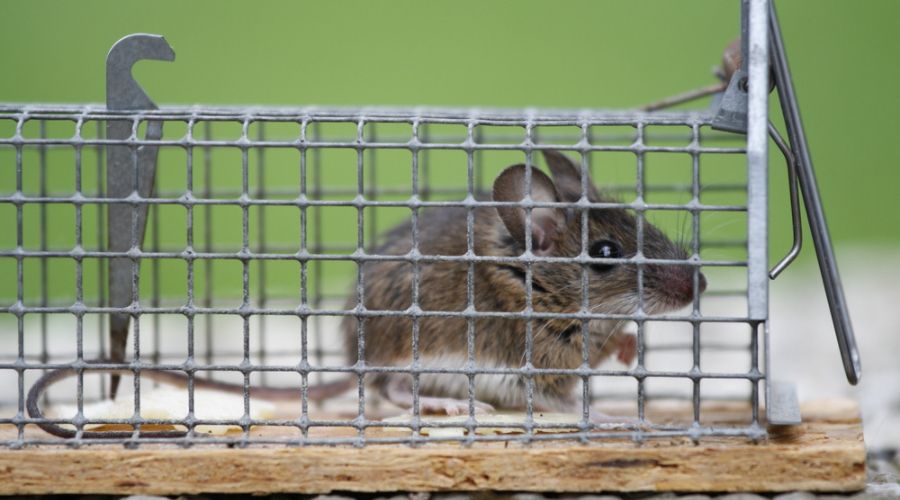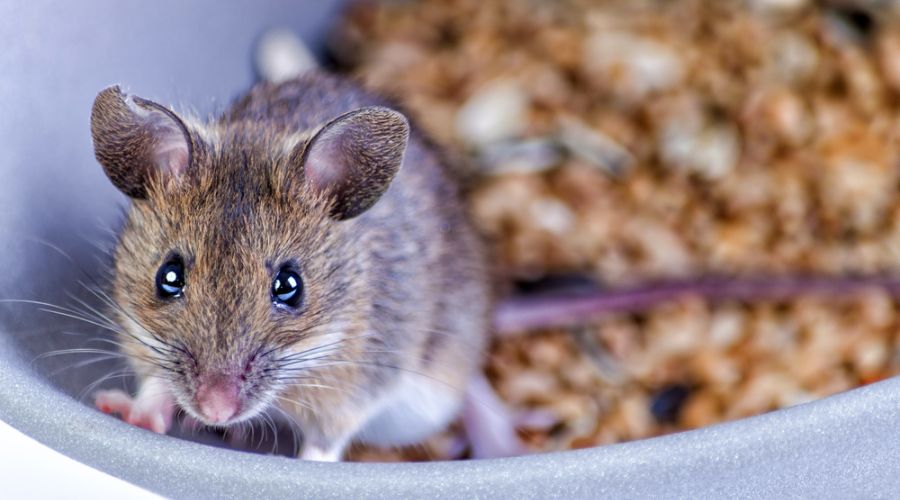If you’ve got mice in your home, you have several elimination options. You can use baited traps, electronic deterrents, mousetraps, and all-natural solutions. However, before undertaking any elimination tools, the first step is to remove their food and water sources.
It is key to know how long it takes for mice to starve and dehydrate. This will help you decide when to use other elimination methods.
How Long Can Mice Go Without Water?
Like other rodents, mice rely on water sources to survive. Mice need water to aid digestion, regulate their body temperature, and rid their bodies of toxins. Unfortunately, the small rodents can survive for more than a month without drinking any water. However, studies show acute water deprivation leads to mice beginning to lose weight and decrease their activities.

Direct Water
Mice can find direct water in the wild in streams, lakes, and puddles. They can also drink water captured on plants through rain and condensation.
When mice move into homes, they find water sources near sinks or bathroom or kitchen cabinets. They will drink condensation around pipes and in sinks. In addition, mice will drink water in overwatered plants, and they help themselves to water bowls for cats and dogs.
Indirect Water
Like humans and other animals, mice can get water indirectly from the food they eat.
Limiting Water Sources
If you need to remove mice from your home you’ll want to limit direct and indirect water sources.
First, remove all accessible water sources like pet water bowls, overwatered plants, and standing water. Also, insulate pipes so condensation cannot develop. Mice will crawl into sinks to drink water that drips from the tap, so ensure all faucets are tightly closed.
If you have plumbing leaks, hire a plumber to repair the problem. Keep your home at a humidity level that does not encourage moisture build-up to prevent mice and other pests from entering your home.
How Long Can Mice Go Without Food?

Mice are adaptable and resilient animals, but their small bodies need calories for consistent energy. Unlike their minimal need for water, mice must consume food every two to four days.
Mice continually crave food, and they have a speedy metabolism. Mice nibble constantly to satisfy their cravings. They also need to eat and gnaw to keep their front teeth from overgrowing.
House Mice vs. Wild Mice
Because wild mice need to work harder to find food and shelter, they need more calories than a house mouse. They also need the energy to escape predators.
When mice move into homes, they no longer have to get away from natural predators. House mice do not need as many calories because they don’t have to work as hard as wild mice to survive.
If mice have a constant water source, they can survive longer than two to four days without food, but not for long. Resourceful mice often store their food in their nests to survive difficult times without food.
Limiting Food Sources
Mice are tiny, so they can subsist on crumbs. Therefore, homeowners need to clean up their kitchen and eating areas after consuming food. It’s also helpful to vacuum and sweep the floors regularly to remove fallen crumbs.
Mice also get into food stored in cupboards. Always store food in sealed containers to keep your food safe from mice. Mice can chew through cardboard and paper, so hard plastic or metal containers are your best choice.
Don’t leave pet food out all day and night as mice will help themselves. Also, keep pet food stored in tightly sealed containers.
Professional Pest Control Solutions

Mice can be problematic for homeowners. If you are struggling to remove a mouse infestation from your home, contact Romney Pest Control. Our pest control experts can help with mouse control to remove them and prevent mice from entering your home.




